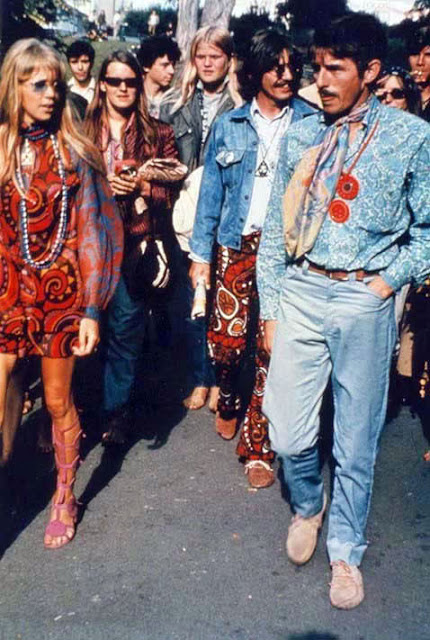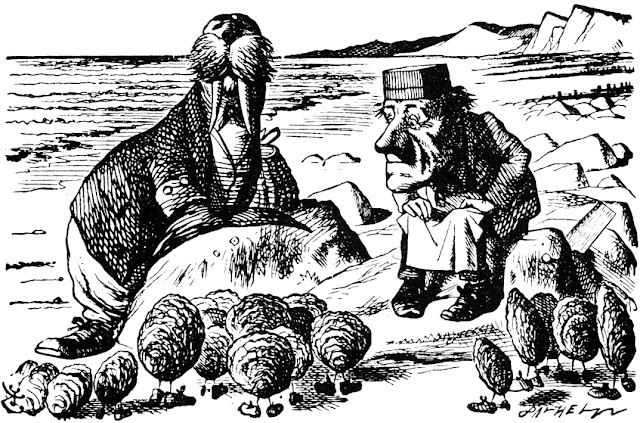The Walrus and the Carpenter - illustrator John Tenniel Sexual suggestion is present in several early Beatles songs ( Please, Please Me, Norwegian Wood, I Wanna be Your Man, From Me to You). They liked to insert rude jokes (the tit, tit,tit backing vocal on Girl being a blatant example) while leaving room for plausible deniability. Two lines in I Am the Walrus, the first new song written after the death of Brian Epstein stepped across the unacknowledged line. Crabalocker fishwife, pornographic priestess Boy, you’ve been a naughty girl, you let your knickers down No knickers It was the precise form of words rather than the lewd overtones that caused problems. The Beatles might have got away with pornographic priestess as word play but knickers was strictly verboten . The BBC had Victorian standards of prudery when it came to that item of clothing. The 'ban' consisted of pla...






